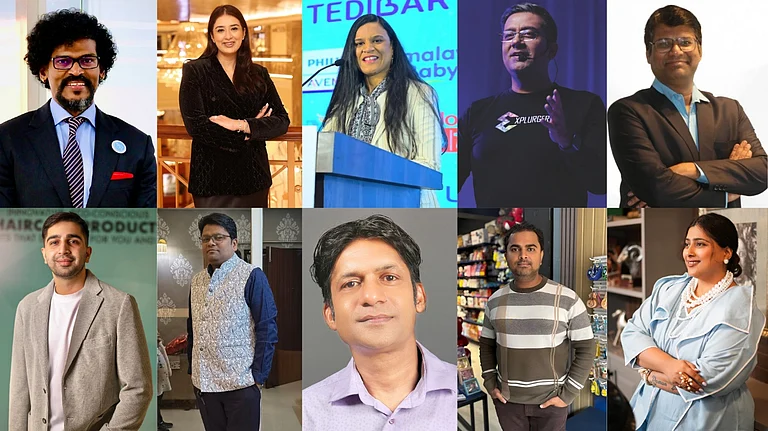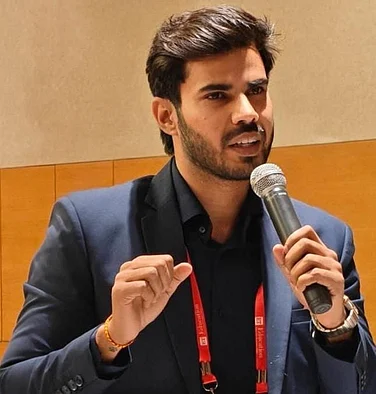Hyderabad-based Hala Mobility, founded in 2020 by Dr. Srikanth Reddy Kalakonda, has rapidly grown into one of India’s most promising electric mobility ventures. In just a few years, the company has established itself as a pioneer in the EV-as-a-Service model, bridging technology, finance, and grassroots empowerment. By reimagining how delivery fleets operate, Hala has developed an ecosystem where electric two-wheelers and three-wheelers are not merely vehicles but tools of transformation—for corporations seeking efficiency, for gig workers seeking livelihoods, and for communities striving for cleaner futures.
From its inception, Hala Mobility was built on the conviction that electrification of last-mile delivery in India required a full-stack approach. It was not enough to provide vehicles alone; companies and drivers needed batteries, charging and swapping infrastructure, financing solutions, insurance coverage, predictive analytics, and operational support—all stitched together seamlessly. Hala responded by building an integrated platform that connects each of these dots. Today, with more than 5,000 vehicles on road, the company has powered over 216 million electric kilometers, reducing thousands of tonnes of CO₂ emissions while proving that sustainability and profitability can go hand in hand.
The company’s growth has been remarkable, underpinned by a clear philosophy: that EV adoption in India must be inclusive and scalable. Working with industry leaders such as Zomato, Zepto, BigBasket, Flipkart, Amazon, and Porter, Hala has become the go-to partner for delivery giants making the transition from internal combustion engines to electric fleets. Its service model ensures that downtime is minimal, fleet economics are optimized, and drivers can earn sustainably without being burdened by heavy upfront costs.
What makes Hala unique is its ecosystem-based structure under the HELIX Group umbrella, which allows it to control and innovate across the entire EV value chain. Instead of being a single-vertical company, Hala has cultivated multiple specialized arms. Its refurbishment and manufacturing unit extends vehicle lifecycles, its battery manufacturing entity produces swappable packs tailored for Indian conditions, and its IoT and hardware vertical delivers smart controllers, battery management systems, and swap station technology. A predictive analytics platform, Cercle OS, provides digital twin capabilities and deep insights on fleet performance, while BluBase focuses on gig worker enablement, bundling accommodation, food, and EV packages together as a holistic solution. Insurance and financing are addressed through Kavach and Rinoca, while Zyora ensures that end-of-life batteries are recycled, creating a sustainable circular economy.
This integrated structure gives Hala Mobility a rare advantage: the ability to innovate in-house, reduce costs across the lifecycle, and offer clients and drivers a truly reliable end-to-end solution. Few companies in the Indian EV space have been able to match this depth of vertical integration, and it positions Hala as a future leader not just in fleet operations but in the broader sustainable mobility landscape.
Equally important is Hala’s focus on empowerment. Through initiatives like Hala+, the company has extended its model to women’s self-help groups, rural entrepreneurs, and first-time fleet owners, enabling them to participate in the green mobility economy. By providing access to vehicles, battery swapping stations, and training, Hala is democratizing EV ownership and creating new livelihood pathways. In villages and Tier-2 towns, this has meant that women-led groups and local entrepreneurs can now build small-scale fleet businesses, provide last-mile delivery solutions to nearby cities, and generate employment at the grassroots.
The company’s achievements have not gone unnoticed. Hala recently closed a ₹51 crore Pre-Series A funding round, structured through a blend of equity, debt, and vehicle financing. This efficient capital deployment has allowed the company to expand without over-leveraging, while maintaining the discipline required to build long-term value. Investors and industry observers alike recognize Hala as one of the few startups that has successfully married bold ambition with operational rigour, a balance that is rare in the high-growth EV sector.
Looking to the future, Hala Mobility’s roadmap is both ambitious and strategic. By March 2026, it aims to scale to over 10,000 vehicles and cross ₹100 crore in revenues. Expansion into Tier-1 and Tier-2 cities is already underway, with infrastructure partnerships being forged to establish battery swap stations, charging pods, and service hubs at petrol stations, metro stops, and real estate developments. The company is simultaneously enhancing its predictive analytics capabilities through Cercle OS and developing advanced IoT infrastructure with Twinfinity, ensuring that every asset can be monitored, optimized, and controlled in real time. Its recycling vertical, Zyora, will scale to handle thousands of batteries annually, cementing Hala’s role as a pioneer in India’s EV circular economy.
For Dr. Kalakonda, the journey has always been about more than building a company. It has been about building a movement—one that creates wealth not just for shareholders, but also for drivers, micro-entrepreneurs, and communities. As he often remarks, “Hala is not just about moving people and goods; it is about moving lives forward. Every ride taken, every swap completed, every entrepreneur empowered contributes to a legacy of inclusive prosperity. We are building futures, not just fleets.”
In a sector crowded with aspirants but short on execution depth, Hala Mobility stands out as a company that combines vision, innovation, and purpose. By weaving together technology, finance, community empowerment, and sustainability, it is crafting a legacy that will shape the future of mobility in India and beyond.


























